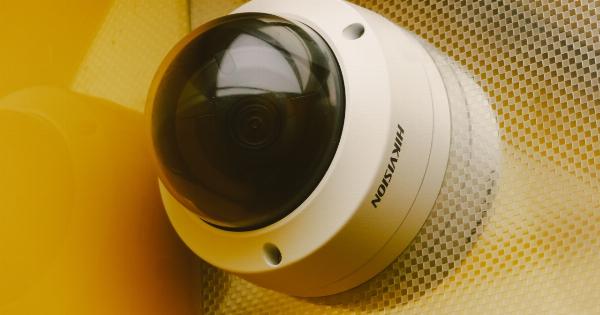Colorectal cancer, often referred to as colon cancer, is one of the most common types of cancer globally. It can be a life-threatening condition if left untreated or undetected.
However, despite the importance of regular colon cancer screenings, many people avoid undergoing them for various reasons. These reasons range from fear and misconceptions to lack of awareness and financial concerns. Understanding these common reasons can help address barriers and encourage individuals to prioritize their health through early detection and prevention.
Fear of the screening process
One significant reason people avoid colon cancer screenings is fear. The anxiety associated with invasive medical procedures like colonoscopies or even less invasive tests like stool tests can be overwhelming for some individuals.
Concerns about discomfort, embarrassment, or fear of potential complications can deter people from scheduling screening appointments. Moreover, anxiety related to potential diagnosis or the anticipation of bad news may also contribute to avoidance.
Lack of awareness about the importance of screenings
Another common reason for avoiding colon cancer screenings is a lack of awareness about their importance. Some individuals simply may not understand the significance of these screenings in detecting cancer at early stages.
They may not be informed about the statistics that show early detection increases the chances of successful treatment and survival rates. Educating individuals about the benefits of colon cancer screenings through public health campaigns and community outreach is crucial in dispelling misconceptions and increasing participation rates.
Fear of a positive diagnosis
Another factor that dissuades people from undergoing colon cancer screenings is the fear of receiving a positive diagnosis. Many individuals prefer to live in denial or avoid facing the possibility of having cancer.
By avoiding screenings, they can convince themselves that they are not at risk, even though early detection can significantly improve prognosis and treatment options. It is essential to emphasize that early detection not only saves lives but also opens doors to less invasive treatment options and higher chances of full recovery.
Misconceptions about symptoms and risk factors
There are several misconceptions surrounding the symptoms and risk factors associated with colon cancer. Some individuals wrongly assume that only older adults are at risk, leading to complacency among younger age groups.
Additionally, people may dismiss the symptoms, such as changes in bowel habits or blood in the stool, as common digestive issues. Lack of awareness about the various risk factors, such as family history, obesity, smoking, and a sedentary lifestyle, can also prevent individuals from undergoing screenings.
Disseminating accurate information and debunking myths can help address these misconceptions.
Concerns about privacy and embarrassment
Privacy concerns and embarrassment are significant barriers to colon cancer screenings, especially for populations that value personal modesty or cultural norms.
The preparation process for colonoscopies, which often involves strict dietary restrictions and bowel cleansing, can feel intrusive and uncomfortable. Some individuals may feel embarrassed about discussing their bowel movements or undressing for the procedure.
Healthcare providers need to foster an environment that respects and addresses these concerns to make the screening process more comfortable for patients.
Limited access to healthcare resources
Limited access to healthcare resources, including the availability of screening facilities and insurance coverage, is a common reason for avoiding colon cancer screenings.
For individuals without health insurance or those living in areas with limited healthcare infrastructure, the cost of screenings and follow-up procedures can be prohibitive. Lack of transportation to medical facilities or geographic barriers in accessing healthcare services can further amplify this issue. Increasing access to affordable and convenient screening options is crucial in overcoming this barrier.
Time constraints and busy lifestyles
Modern-day lifestyles often revolve around packed schedules and multiple responsibilities, leaving little time for preventive healthcare.
Many individuals prioritize their work and familial commitments over scheduling and attending screening appointments. The time required for preparation, procedures, and recovery may seem daunting, causing them to postpone or neglect colon cancer screenings.
Raising awareness about the time investment required for screenings and offering flexible appointment options can encourage individuals to prioritize their health.
Negative past experiences or medical traumas
Individuals who have had negative past experiences or medical traumas may develop an aversion to undergoing further screenings. Unpleasant experiences with medical procedures or healthcare providers can create lasting associations with fear and anxiety.
These negative emotions may lead to avoidance, even when it comes to potentially life-saving screenings. Addressing these concerns and providing adequate support and reassurance can help individuals overcome their anxieties and make informed decisions about their health.
Underestimating personal risk
Some people simply underestimate their personal risk for colon cancer. They may believe that because they have no family history or do not exhibit any symptoms, they are immune to the disease.
However, several risk factors, such as age, lifestyle habits, and obesity, can increase an individual’s susceptibility to colon cancer. Encouraging individuals to understand their personal risk and the importance of regular screenings can help combat this perception of invulnerability.
Reliance on alternative or pseudoscientific remedies
Another reason people avoid colon cancer screenings is their reliance on alternative or pseudoscientific remedies. Some individuals may believe that consuming certain herbs, supplements, or adopting specific diets can eliminate the risk of cancer.
These unfounded beliefs can lead them to neglect traditional medical screenings and rely solely on unproven alternatives. It is essential to promote evidence-based medicine and educate individuals about the limitations of alternative remedies when it comes to cancer detection and prevention.
Financial concerns and lack of insurance coverage
Financial concerns, such as the cost of screenings and follow-up tests, can be a significant deterrent for many individuals. Without adequate insurance coverage, the out-of-pocket expenses associated with colon cancer screenings can be burdensome.
Additionally, the fear of potential high costs for treatments and surgeries if diagnosed with cancer can also dissuade people from undergoing screenings. Expanding insurance coverage and ensuring affordable or free screening options can alleviate these financial concerns and encourage more individuals to prioritize their health.






























